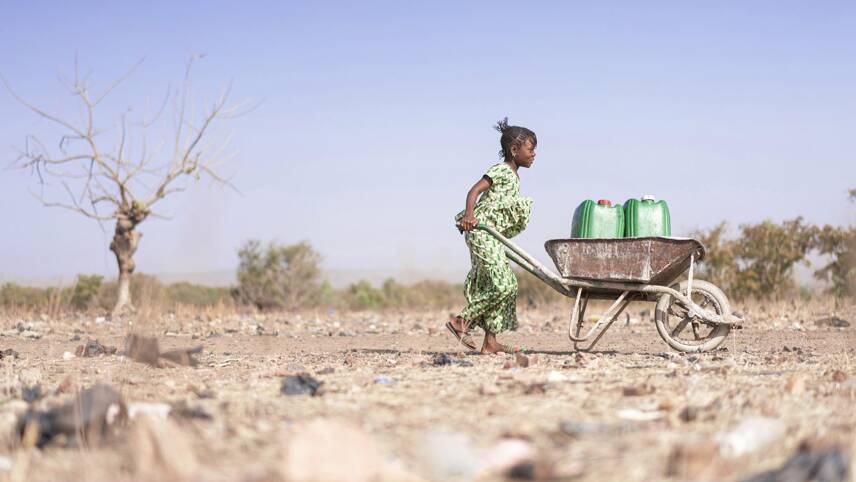Register for free and continue reading
Join our growing army of changemakers and get unlimited access to our premium content

The FAO unveiled its ambitious new roadmap at Food, Agriculture and Water Day at COP28 (10 December). The Global Roadmap for Achieving Sustainable Development Goal 2 (SDG2) without Breaching the 1.5°C Threshold outlines more than 120 actions and milestones to transform food production to respond to the twin threats of the climate crisis and chronic hunger globally. The programme bids to deliver the Paris Agreement while ensuring that SDG 2: Zero Hunger is delivered.
The FAO has introduced targets to reduce methane emissions from agrifood production and systems by 25% by 2030, relative to 2020 levels, before reaching carbon neutrality by 2035. Long-term targets include transforming the sector into a net-positive carbon sink by 2050, capturing 1.5 gigatons of greenhouse gas emissions annually.
It also sets out a pathway to eliminate chronic undernourishment by 2030 while promoting healthy diets globally by 2050. Additional milestones listed in the roadmap include halving global food waste per capita by 2030 and updating the FAO’s food-based dietary guidelines (FBSG) to ensure each country has recommendations suited to its circumstances on dietary patterns.
“FAO’s Global Roadmap for SDG2 and 1.5C underscores the importance of climate financing for agrifood systems transformation to achieve good food for all, today and tomorrow,” the FAO’s Director-General Qu Dongyu said.
With more than 600 million people facing chronic hunger by 2030, the roadmap aims to deliver SDG 2 while also responding to the escalating climate crisis, which has seen delegates at COP28 continue negotiating on a potential phase-out of fossil fuels globally.
The comprehensive new strategy will span the next three years, with additional supporting initiatives to be rolled out at the next two annual climate conferences. At COP29 next year, the FAO will explore regional adaptation and financial options to support the roadmap, while COP30 in Brazil will outline investment and policy packages at a country level.
The strategy will aim to funnel investment into 10 areas that can deliver the biggest impact.
Firstly, it outlines efforts to transform agrifood systems from a net emitter to a carbon sink and calls for the exploration and implementation of alternative production methods, adjusted consumption patterns, refined forestry management, and the introduction of solutions such as carbon capture.
These methods span across different areas of the agrifood sector including, clean energy, crops, fisheries and aquaculture, food loss and waste, forests and wetlands, healthy diets, livestock, soil and water.
The FAO also states that one-size-fits-all solutions will not work in the grand scheme of the plan and that nations must plan out efforts to deliver the roadmap in a Just and inclusive way.
The roadmap comes on the heels of the Emirates Declaration, which saw more than 150 countries commit to integrating food systems into their climate mitigation and adaptation plans.
Additionally, COP28 also saw the launch of the Alliance of Champions for Food Systems Transformation (ACF). Brazil, Cambodia, Norway, Sierra Leone and Rwanda are the five nations that have launched the Alliance in a bid to transform national food systems to deliver universal access to affordable, nutritious and sustainable diets.
The nations have committed to a ‘whole of government’ approach to transforming food systems across the themes of food and nutrition security; adaptation and resilience; equity and livelihoods; nature and biodiversity; and climate mitigation.


Please login or Register to leave a comment.